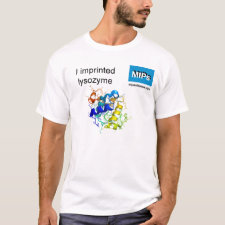
Authors: Li YY, Zhang X, Chen WJ, Liu HY, Sun LQ, Luo AQ
Article Title: Preparation and adsorption characteristics of lysozyme-imprinted polymer membrane.
Publication date: 2019
Journal: Chinese Journal of Chromatography
Volume: 37
Issue: (4)
Page numbers: 392-397.
DOI: 10.3724/SP.J.1123.2018.10022
Alternative URL: http://pub.chinasciencejournal.com/ChineseJournalofChromatography/45432.jhtml
Abstract: In this work, a novel polymer membrane molecularly imprinted on a silanized glass substrate was prepared. Lysozyme was chosen as the template protein, and acrylamide and N,N'-methylenebisacrylamide were used as the functional monomer and crosslinking agent, respectively. The adsorption equilibrium time, maximum adsorption capacity, specific recognition ability, reusability, and application of the prepared lysozyme-imprinted polymer membrane were investigated experimentally. The prepared polymer membrane exhibited special recognition ability and could quickly adsorb lysozyme. Under optimal conditions, the adsorption equilibrium time of the prepared polymer membrane for lysozyme was 5 min, and the adsorption behavior conformed to the Langmuir adsorption model; the theoretical maximum adsorption capacity was 42.5 mg/g, and the adsorption capacity for an egg sample was 30 mg/g. Additionally, the polymer membrane showed a high selectivity toward the template protein, lysozyme, and exhibited no obvious adsorption of several interfering proteins; the imprinting factor was 3.0. The maximum adsorption capacity of the polymer membrane decreased by 5% after being reused five times. The polymer membrane was used for the adsorption of lysozyme in samples, and good results were obtained. This strategy has potential for the separation and enrichment of target proteins in complex biological samples.
Template and target information: protein, lysozyme
Author keywords: molecular imprinting technique, Molecularly imprinted polymer membrane, lysozyme



Join the Society for Molecular Imprinting

New items RSS feed
Sign-up for e-mail updates:
Choose between receiving an occasional newsletter or more frequent e-mail alerts.
Click here to go to the sign-up page.
Is your name elemental or peptidic? Enter your name and find out by clicking either of the buttons below!
Other products you may like:
 MIPdatabase
MIPdatabase









